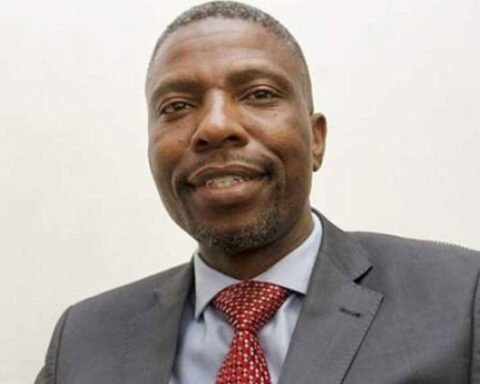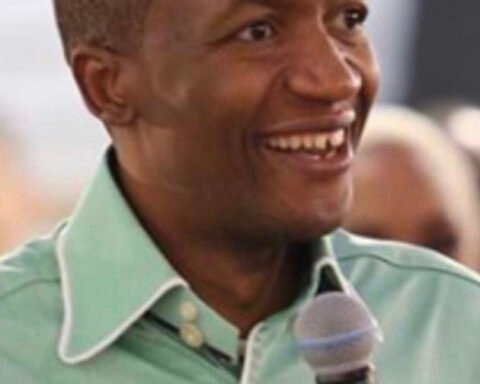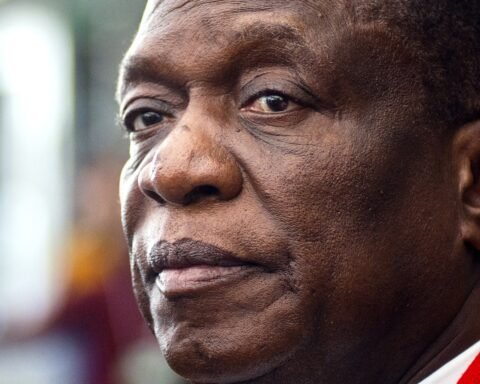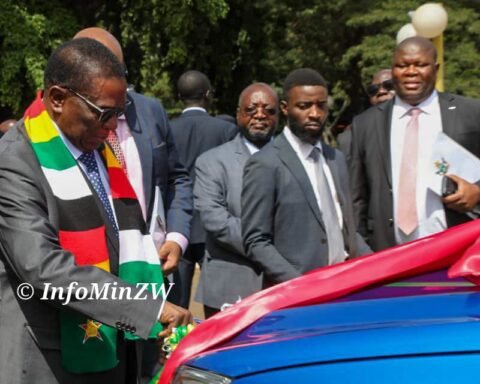This analysis seeks to interrogate manifesting events since the November 2017 change of the presidency and the preceding July 2018 election, the electoral results petitions and the subsequent Constitutional Court ruling. Whereas on 30 July 2018, Zimbabwe held its first harmonized elections following the resignation of Robert Mugabe. The elections offered the country the opportunity to break with the history of contentious elections marked by abuse of political and human rights and state-sponsored violence. It is imperative to sieve the ensuing Zimbabwe government’s actions, priorities and commitments as a SADC and African Union Member state juxtaposed against emerging issues, having regard to the several Human Rights Charters and Provisions of the African Governance Architecture to which Zimbabwe is a signatory. Specific focus is on the African Charter on Democracy, Elections and Governance (ACDEG) with particular scrutiny on Articles that put emphasis on the significance of good governance, popular participation, the rule of law and human rights. These submissions and conclusions are also informed by a deep perusal of the new Zimbabwe Constitution of 2013, the United Nations Human Rights Charter, The African Charter on Human and People’s Rights (June 1981), statements of the UN High Commission for Human Rights on Zimbabwe, The Zimbabwe Human Rights Commission and Amnesty International Reports on the obtaining Zimbabwe political and governance landscape.
It is every downtrodden Zimbabwean’s hope that the purportedly ongoing dialogue is conducted in a credible, inclusive, transparent and accountable way. Efforts at dialogue must be sincere and not a choreo-graphed and highly compromised charade but should incorporate input from a wide spectrum of the Zimbabwean society before this consultative process swiftly degenerate into a farce. There is an apparent glaring lack of a willingness to legitimize and broaden this process into an all-encompassing national dialogue not only for political formations because the current economic woes are a result of the political impasse occasioned by the contested July 2018 Electoral results whereas political tensions have increased dramatically putting at risk the much anticipated democratic trajectory. For the dialogue not to be rendered inconsequential, null and void, it must encompass the business sector, civil society, faith – based organizations, and the ordinary civilians, women and youths included because Zimbabwe is broader than just political parties. All must be set to make citizens in their broad totality speak to a shared vision about the national narrative of unity, prosperity so as to give the dialogue the much needed depth and direction aimed at nation building.
Violence has very much characterized President Mnangagwa’s reign and his administration has been caught with its pants down on numerous occasions and international observers have condemned the violence and the excessive use of force by the army and internal security forces including the use of live ammunition, arbitrary arrests, abductions and rape. The most fundamental in nation building is peace and it is indeed tragic for Zimbabwe in this day and age to turn into a military state and spill blood whilst the ink is still wet on the Molanthe led Commission of Inquiry’s report and recommendations into the August 01 2018 post-election violence where the commission called for an investigation within the security forces and prosecution of those who had committed crimes. Instead of taking a path of reconciliation, healing and re-birth, the administration has chosen a tragic route, there are smoking guns in the streets conveniently spilling blood at every turn and soldiers are still sneaking into people’s homes at night to cow them into submission. Mnangagwa’s promise of a “Second Republic” remains a pie in the sky. For President Mnangagwa’s government, the end justifies the means and not the other way round.
The furiously deteriorating socio-political and economic environment in the country provide glaring governance deficiencies on the Zimbabwean political landscape. Witness to that is the trajectory from the November 2017 change of guard and the preceding euphoria that ushered in the Mnangagwa administration ironically dubbed “The New Dispensation” albeit on the cusp of a deodorized coup that now seem like a mirage. Civil liberties and rights enshrined in the Constitution are not only curtailed but shamefully out rightly stripped off and the witnessed cardinal punishments for dissent have become the order of day. ACDEG Chapter 4: Article 6 clearly spells out that, “State parties must ensure that citizens enjoy fundamental freedoms and human rights taking into account their universality, interdependence and indivisibility.”
In its report titled “Open for Business BUT closed for dissent” Amnesty International condemned President Mnangagwa for his failure to rein in the military since he came into office in November 2017. The report reads in part, “President Mnangagwa’s tenure has been plagued by a cloud of fear arising from the actions of the security forces….raising questions about dual centers of power…and ultimately paralysis in addressing gross human rights violations.” Rather than addressing a myriad of challenges bedeviling the country, President Mnangagwa theatrically and unashamedly throws around the washed-out allegation that the January 2019 protests were a regime change attempt to overthrow his government. To copy his exact words, in an interview with France 24 on the sidelines of the 32nd Ordinary Session of the African Union summit in Addis Ababa, he had this to say of the protests; “Regime change is the better word. It is a regime change agenda which is not new, which has been a phenomenon visiting Zimbabwe throughout the past 18 years.” The government in turn labelled Amnesty International as, “A part of a phalanx of anti-establishment non-governmental organisations (NGOs), quasi-political civil society organisations that work as appendages of opposition political parties.” This excuse has become a convenient smokescreen for the regime’s cyclical tyranny and lack of confidence building measures and credibility.
The international community is divided over how to engage Zimbabwe after overtures for diplomatic initiatives have failed. SADC, the AU and other developing countries continue pursuing diplomacy while trading fully with the country while the developed Western nations have imposed sanctions and taken other punitive restrictive measures because of gross human rights abuses and democratic irregularities. Particularly hampering the government’s high pitched rhetoric of re-engagement and re- integration of the country into the wider community of nations and an abandonment of Mugabe’s isolationist policies is the Mnangagwa administration’s deceitful tendencies of indicating right while turning left.
The government must constitutionally restore the rule of law to court investor confidence and the much needed but elusive foreign direct investment (FDI), through letting go of the witnessed heavy handedness adopted to quell civic unrest. President Mnangagwa’s government has to promote and enhance adherence to the principle of the rule of law premised upon the respect for, and the supremacy of, the Constitution and constitutional order in the political arrangement by promoting democratic culture and practice, inculcating political pluralism and tolerance. It is no secret that in order to advance political, economic and social governance, the government must commit itself to fostering popular participation and partnerships with civil society organisations at the same time undertaking regular reforms of the legal and justice systems.
Civilian masses staged a stay away to voice their vote of no confidence in the new-old dispensation riding on the back of the collapse of the economy, lack of access to social services and the subsequent sharp increase in the price of most basic commodities triggered by massive hike in fuel prices pushed people to anger. The wholesale grotesque human rights abuses witnessed through viral social media videos and pictures of unarmed civilians being brutalized by rogue armed security servants shielded with state impunity. The Zimbabwe Human Rights Commission published a statement that protesters were assaulted by military forces, expressing deep concern about the brutality and violent conduct of the police and stating that the fundamental rights of demonstrators were violated. This has not only turned the country into a military state where soldiers are used for political expediency but has also created the crisis of legitimacy that has dogged Mnangagwa’s reign so far. Soldiers should return to the barracks and allow the masses their constitutional right to demonstrate and petition their leadership
No legislative and administrative measures have been put into place to guarantee the safety and rights of the allegedly sexually abused women, people with disabilities and other marginalized and vulnerable social groups such as the juveniles who were arrested in the clampdown. It is against Mnangagwa’s sadistic comments that women who claimed to have been raped during the January military and police crackdown on protestors were faking it that clearly shows that the government lacks political will to undertake, design and implement social and economic policies and programs that promote sustainable development and human security of its citizens recognizing the crucial role of women in development and the strengthening of democracy. ACDEG Chapter 9: Article 29 clearly postulates that State Parties must create the necessary conditions for full and active participation of women in the decision making processes, demos included and structures at all levels as a fundamental element in the promotion and exercise of a democratic culture.
In what could have serious implications on the Zimbabwean political and governance landscape, SADC as expected dropped a bombshell in a statement released by its chairman and Namibian president Hage G. Geigop siding with Mnangagwa’s government following the vicious military crackdown on the opposition and civic leaders following last month’s stay away. However, the European Union (EU) trashed and scuppered Mnangagwa’s efforts by digging in their heels saying: No Reforms, No Aid as the bloc focuses on measuring outputs and outcomes of policies rather than declarations of intent. Through its commissioner for international co-operation and development, Neven Mimica on the sidelines of the African Union 32nd summit in Addis Ababa Ethiopia, To borrow the popular going phrase, the EU ‘poured sand’ into President Emmerson Mnangagwa face in the wake of his administration’s piecemeal efforts at reforming. Neven’s comments fly in the face of Mnangagwa’s token efforts at reformation whereas Zimbabwe is a signatory to the Cotonou Agreement, Article 96 which stipulates that respect for human rights and fundamental freedoms is an essential element of the ACP-EU cooperation. She reiterated that re-engagement will not succeed unless the government of Zimbabwe institute due reforms for assistance to be forthcoming. Writing on twitter, Mimica said, “We took stock of what has been achieved and agreed that more needs to be done, EU is ready to step up its support if conditions are met” and on the other hand, Britain revealed plans to veto Zimbabwe’s bid to rejoin the Commonwealth citing human rights abuses perpetrated during and after the January stay-away protests.
The interruption of telecommunications has become a tool used by the regime to block the coordination of demonstrations organized on social networks in order to obstruct independent reporting, documentation of abuses and mask the massive human rights violations during the crackdown. Social media makes scrutiny of the powerful easier and the internet shutdown during the January 2019 protests, undermined some important conditions of democracy to foster citizen participation, transparency, access to information, freedom of the press and accountability in the management of public affairs in the modern world. International organisations such as Design4Democracy Coalition, are working and giving insights into how to ensure that technology and social media work to better support democracy and human rights globally to promote political accountability, the integrity of democratic governance and political processes. Zimbabwe as a nation need to draw on its context to allow for the sharing, understanding of informational dynamics that shape technology’s role in providing alternative narratives from the state controlled mouth pieces/public media. Freedom of speech must be upheld through development and utilization of information and communication technologies but it was curtailed through the archaic legislation Public Order and Security Act (POSA), a preferred Mugabe tactic that must find no further existence in the Second Republic.
The love-hate relationship between the people and the soldiers needs to be interrogated from the November 2017 seemingly angelic coup celebrations juxtaposed against the August 01 2018 massacres and the January 2019 mass stay away brutal clampdown. The role of the opposition parties in this façade ironically aided in hoodwinking the regional and international community to accepting the coup. However, it is now crystal clear that Mnangagwa’s ascendancy, access to and exercise of state power is not in accordance with the principle of rule of law and the respect for human rights and democratic principles as enshrined in chapter 3 of the ACDEG instrument. It does not resonate with the principle of reforming the security sector and the fostering of harmonious civil-military relationships in society. His deployment of the military is an abrogation and violation of section 213 of the country’s constitution and that precipitates anarchy in the motherland.
President Mnangagwa’s continued threats to deal with those suspected to be behind the national ‘stay-away’ protests, including non-governmental organisations, trade union leaders, opposition leaders, doctors and lawyers for human rights are deeply troubling and unwarranted. His unfortunate threats to unleash the military on civic society and opposition leaders is a sinister hint that things will probably get worse as the lack of compromise, consensus and tolerance as a means to mitigate conflicts continues unabated. His recent utterances at a Zanu-PF Thank You Rally in Masvingo Province that his government had started looking for human rights lawyers and nurses who provided medical and legal assistance to hundreds of civilians injured and arrested in the state-sponsored crackdown following last month’s violent protests does not promote the culture of tolerance and restraint, which are the key ingredients for political stability and security.
Zimbabwe’s record with regard to human rights and democracy is one of the poorest in the world. Ideally, Mnangagwa’s administration should do away with restrictions taking cognizant that freedom of assembly, association and expression are essential components of any democracy. The government must create conducive conditions to open up democratic spaces so as to strengthen and institutionalize constitutional civilian control over the armed and security forces to ensure the consolidation of democracy and constitutional order. To unlock the country’s potential, register more gains pursued reform agenda under the banner of the Second Republic, national programs need to have the virtues of democratic ownership, where inclusivity and accountability are nurtured and embraced wholeheartedly so that we don’t continue sinking deeper into the abyss. The government’s work is cut out for them, to conform to the provisions of international human rights instruments ratified by Zimbabwe, upscale the realignment of laws to the new 2013 constitution which has expansive provisions and protection of civic and political rights. In the absence of trust, confidence and national cohesion, the dialogue and reform processes remain exercises in futility haunted by deep suspicion and the trust deficit. Indeed Zimbabwe is our country and this is the only country we have.







